Campaign 2024
The Minor Candidate Debate Recap
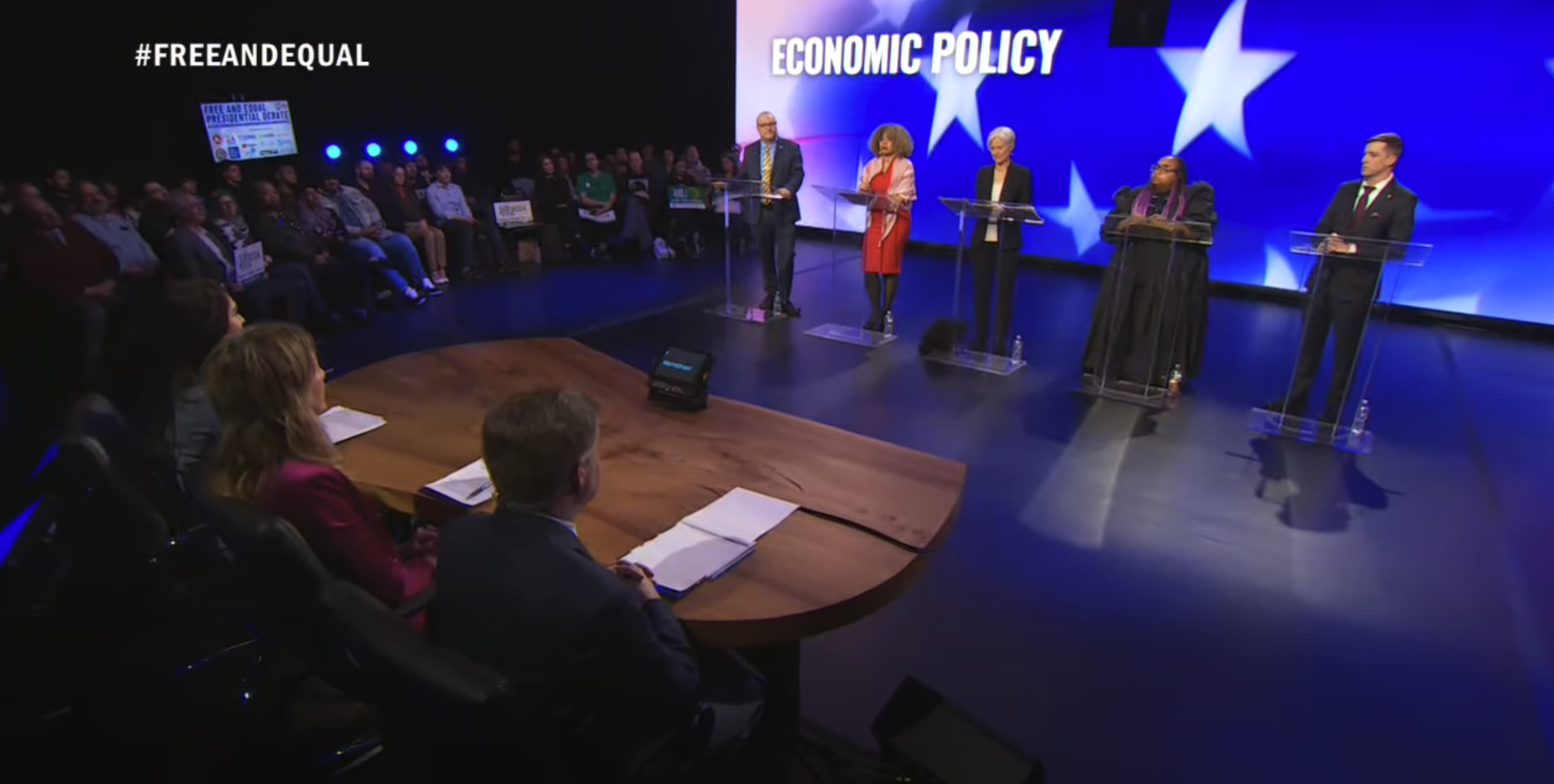
Earlier tonight, the Free and Equal Elections Foundation hosted their debate for the 2024 Presidential Election. Powered by the Nexus.io blockchain, the debate featured the top 7 candidates of a popular verified vote online. The invited candidates included Robert F. Kennedy Jr, Cornel West, Jill Stein, Chase Oliver, Lars Mapstead, Jasmine Sherman, and Claudia De La Cruz.
Most voters have no idea who any of these candidates are, but some of them will be on the ballot in November. I watched the entire debate, I’ve read all of the candidates platforms, and I hope I can portray each of them objectively. However I will be listing the participating candidates in order of how well I think each of them performed, so my opinions on the quality of their debating will also feature.
Chase Oliver (Libertarian)
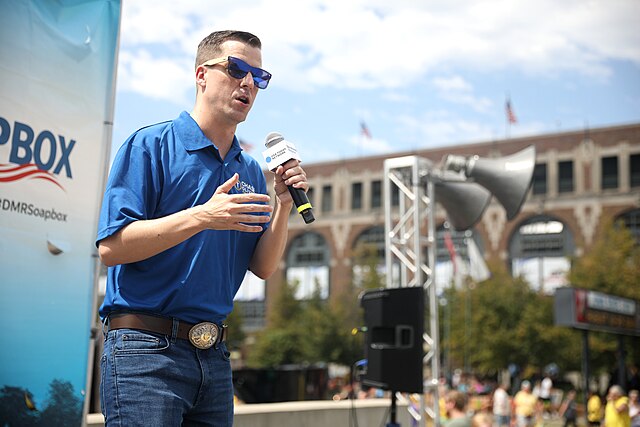
Chase Oliver gave a polished performance, and had the most well defined platform of the debate. A strong and true Libertarian, he endorsed a number of policy views throughout the debate, including an Ellis Island-style solution for the immigration crisis, ending qualified immunity for police officers, criminal justice reform, drug legalization, an anti-war foreign policy, and more.
His catchphrase throughout the night was that Americans are “sick and tired of being sick and tired,” expressing how he plans to challenge the two party system and be a candidate for change in the 2024 presidential election.
Chase is also the most likely candidate to actually be on ballots come November. He has been one of the most active campaigners throughout the cycle so far, with a plan to visit all 50 states. He won the non-binding Iowa caucus earlier this year, and he is well positioned to win the Libertarian nomination.
Claudia de la Cruz (Socialism and Liberation)
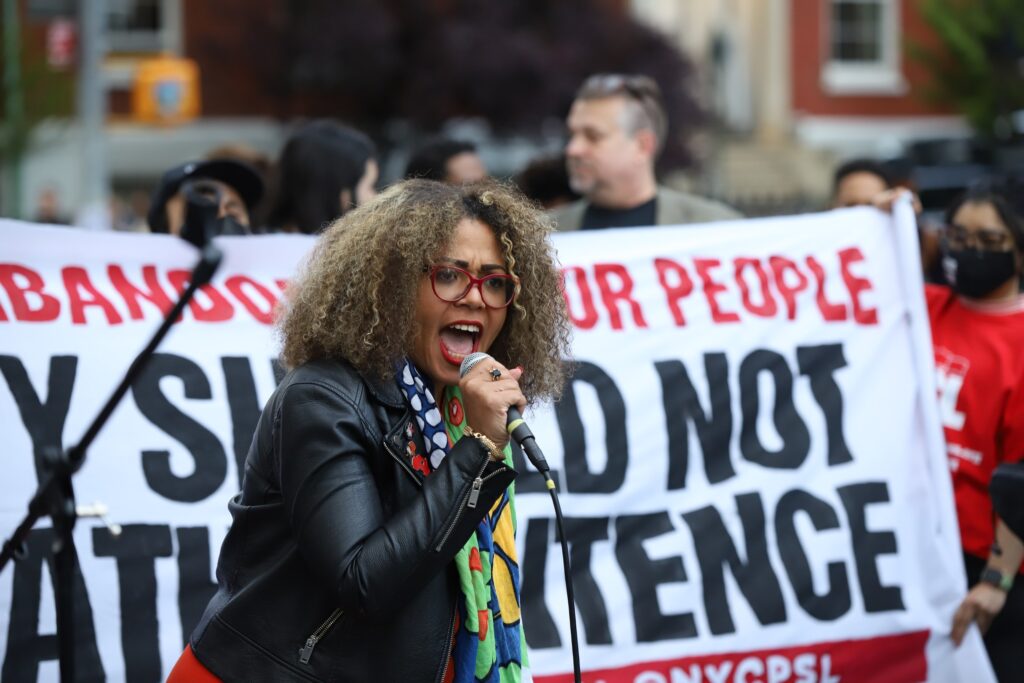
Claudia de la Cruz, while not as well spoken as Chase, gave a very solid performance in the debate. Running on a Socialist platform, her policies definitely sounded more radical during the debate. However this made her stand out from a crowd of candidates who otherwise had rather similar policy views on drugs, immigration, and more.
Claudia referenced the “dictatorship of the rich” several times during the debate. This resonates with her economic platform, which is definitively anti-capitalist. She also emphasized a strongly anti-war platform, especially regarding Palestine, and advocated for the end of the “US empire.”
The Socialism and Liberation Party is highly unlikely to make it onto the ballot in all 50 states, or even get close. They currently are on the ballot in just two, Utah and Hawaii. This will make it hard for her to have a real impact on the race. However she gave a solid performance in the debate, and raised some interesting policy perspectives that contrasted nicely with the Libertarians on both sides of her.
Jill Stein (Green)
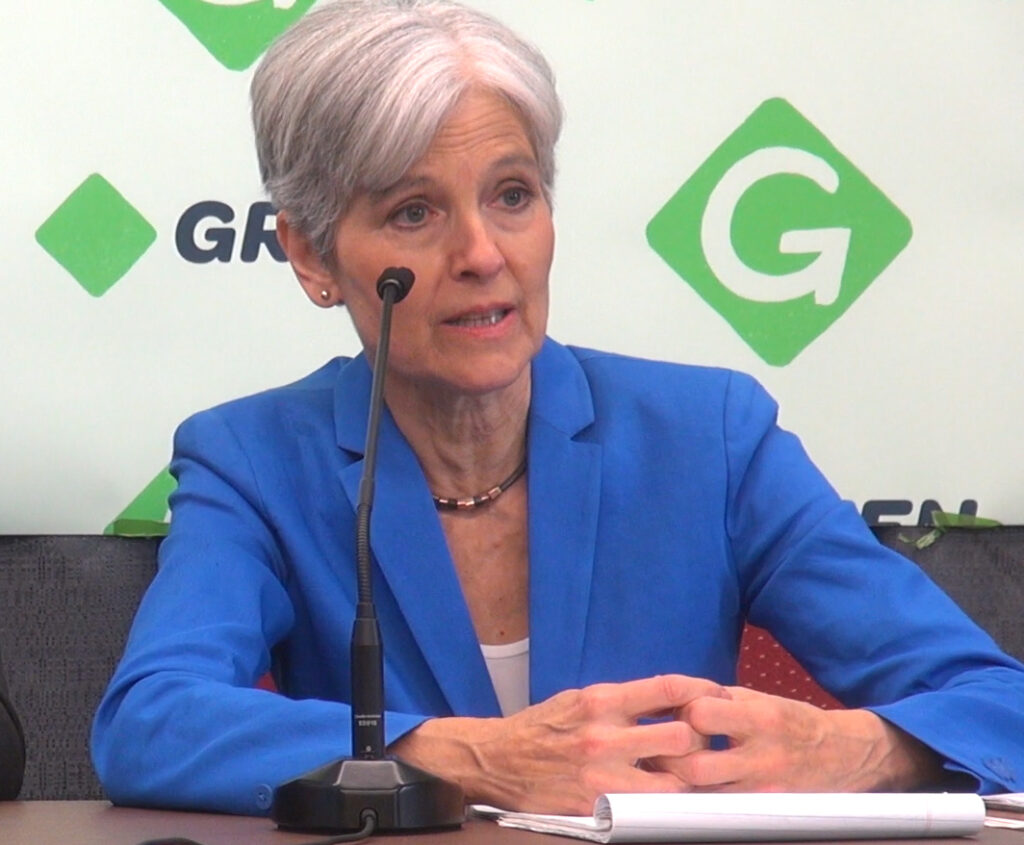
Jill Stein is running for President for the third time now, and her campaign gives off a sense of deja vu. Haven’t I already heard this woman in 2016? Strangely, her experience campaigning did not shine through in her debate performance. She came off as nervous and underprepared several times throughout the night, particularly closer to the start of the debate.
She had some good moments, particularly when hitting on US interventionism abroad. She successfully highlighted her view of the CIA’s role in interfering with foreign countries politics, and promoted a non-interventionist suite of policies. However these did little to make her stand out amongst the candidates, all of which shared that view.
Stein appeared a slightly more moderate version of de la Cruz, so if I were her campaign I would be worried that de la Cruz would steal a large chunk of voters after tonights performance. The only thing Jill Stein’s campaign has going for her is a ballot access advantage, with the greens currently on the ballot in 20 states + DC, with the potential to earn several more lines before the election.
Jasmine Sherman (Unicorn)

Jasmine Sherman had a fantastic start, but ultimately their platform failed to stand out from the other candidates. They emphasized a landback policy on Native Americans, LGBTQ+ rights, supporting disability rights, defunding the police, and guaranteed housing.
They ended their closing speech by saying “let’s restart,” and promising that a third party candidate could win. However their shot at winning is probably the lowest on the stage. They participated in the debate as the candidate for the Unicorn Party, although they says they is also looking for the Green Party and Peace and Freedom Party nominations. However it is unlikely that they receive either of those endorsements. It is currently unclear if the Unicorn Party has ballot access in any state.
Lars Mapstead (Libertarian)
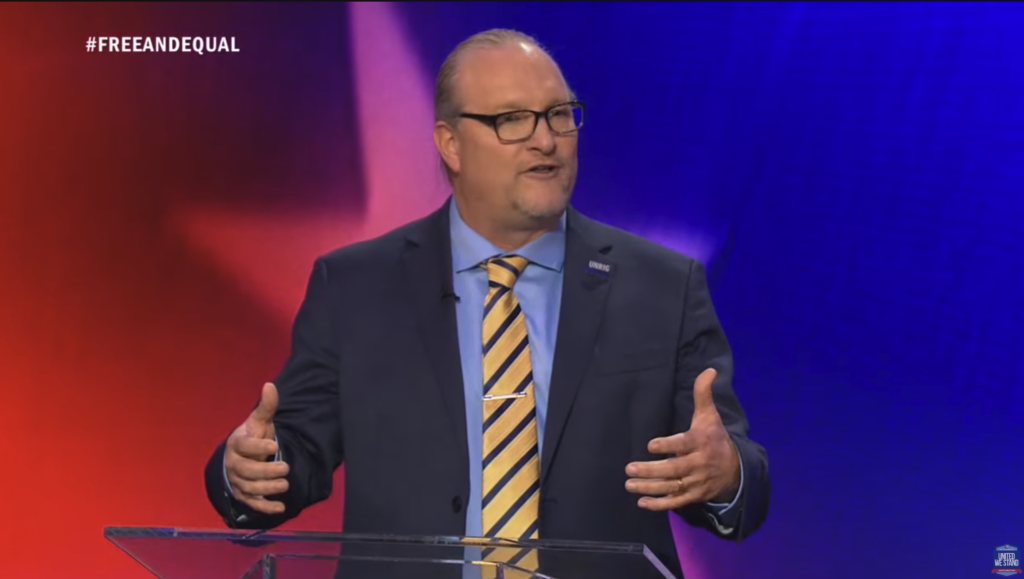
Lars repeated his slogan to “unrig the system” several times throughout the night. He got some Libertarian points across, but as the second strongest Libertarian on the stage he often came across as a worse version of Oliver, largely due to unpracticed and unconfident debate skills. Unfortunately this contrast was not kind to him, and made him the less appealing Libertarian pick on the stage.
Lars is relatively well positioned to do well at the Libertarian Convention, partially due to a large self funding advantage. If nominated, he would have a decent chance at making an impact on the 2024 election.
Conclusion
Chase Oliver definitely won the debate, and his collected demeanor contrasted very well with a stage featuring candidates that sounded and looked much more nervous at times. If you would like to watch the full debate, it can be found at this link.
Campaign 2024
Washington Post loses 200,000 subscribers after not endorsing in 2024 election
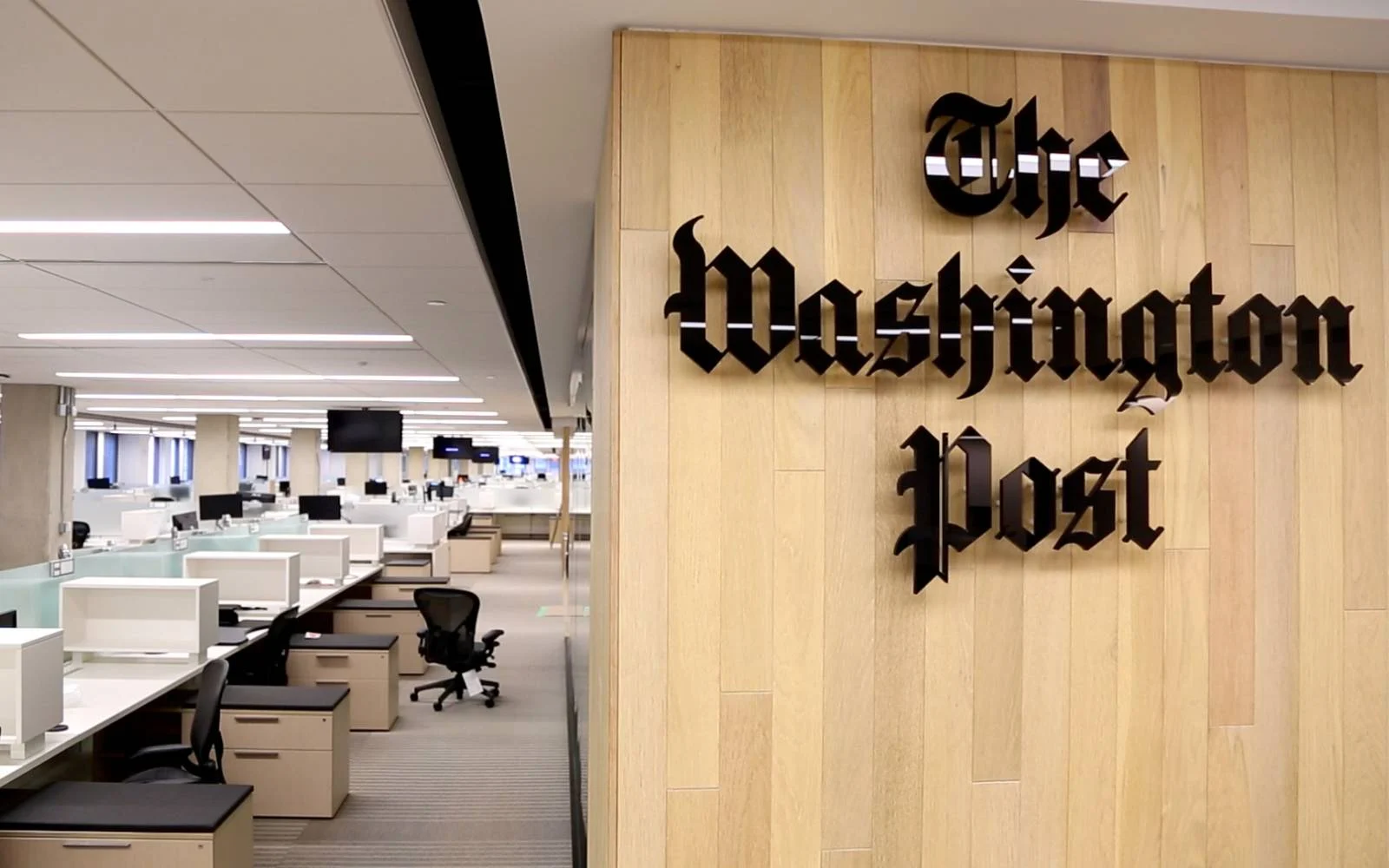
In a stunning development, The Washington Post has reportedly lost approximately 200,000 subscribers following its controversial decision to abstain from endorsing a candidate in the 2024 presidential election. This marks a significant departure from the newspaper’s long-standing tradition of endorsing presidential candidates, a practice it had maintained since 1976.
On October 25, 2024, Will Lewis, the publisher and CEO of The Washington Post, announced that the newspaper would not endorse any candidate for the presidential election, breaking a decades-long tradition. This decision came as a shock to many, especially considering that the editorial board had already drafted an endorsement for Vice President Kamala Harris.
The announcement triggered immediate backlash from both readers and staff members. Former executive editor Marty Baron publicly criticized the move, calling it “an act of cowardice” and expressing concern that it would embolden Donald Trump to further intimidate owner Jeff Bezos and other media proprietors.
In the weeks following the announcement, The Washington Post has reportedly experienced a massive decline in its subscriber base. According to inside sources, approximately 200,000 subscribers have canceled their subscriptions, citing disappointment and frustration with the newspaper’s decision.
This exodus represents a significant blow to the publication, both financially and in terms of its influence. The Washington Post, like many traditional news outlets, has been working to transition to a digital-first model in recent years, making subscriber retention crucial to its long-term viability.
The decision has not only affected subscribers but has also caused turmoil within the newspaper itself. Several staff members have expressed their discontent publicly, with some even considering signing an open letter to protest the decision.
In a notable development, Robert Kagan, an editor-at-large at The Post, reportedly resigned in protest following the announcement. This high-profile departure has further fueled the controversy surrounding the decision.
The Washington Post’s subscriber loss has sent shockwaves through the media industry. Other publications are closely watching the situation, considering how it might affect their own endorsement practices and subscriber bases. This event has reignited debates about the role of newspaper endorsements in modern elections and the balance between journalistic neutrality and civic responsibility. Some argue that endorsements are outdated and unnecessary, while others maintain that they play a crucial role in informing the electorate.
In response to the subscriber exodus, The Washington Post has attempted to clarify its position. Will Lewis emphasized that the decision aligns with the newspaper’s commitment to independence and allowing readers to form their own conclusions.
However, these explanations have done little to stem the tide of cancellations. The newspaper now faces the challenge of rebuilding trust with its readership and potentially reconsidering its stance on endorsements for future elections.
As the 2024 election approaches, The Washington Post finds itself in uncharted territory. The loss of 200,000 subscribers represents not only a financial setback but also a diminishment of the newspaper’s reach and influence at a critical time in American politics.The coming weeks and months will be crucial for The Post as it navigates this crisis.
Whether it can regain the trust of its lost subscribers and attract new ones will depend on its coverage of the election and its ability to demonstrate its commitment to journalistic integrity and democratic values.
This episode serves as a stark reminder of the delicate balance news organizations must strike between maintaining editorial independence and meeting the expectations of their readership. As the media landscape continues to evolve, the role of traditional endorsements and the relationship between newspapers and their subscribers may need to be reevaluated.
Campaign 2024
Donald Trump sits for 3 hour podcast with Joe Rogan
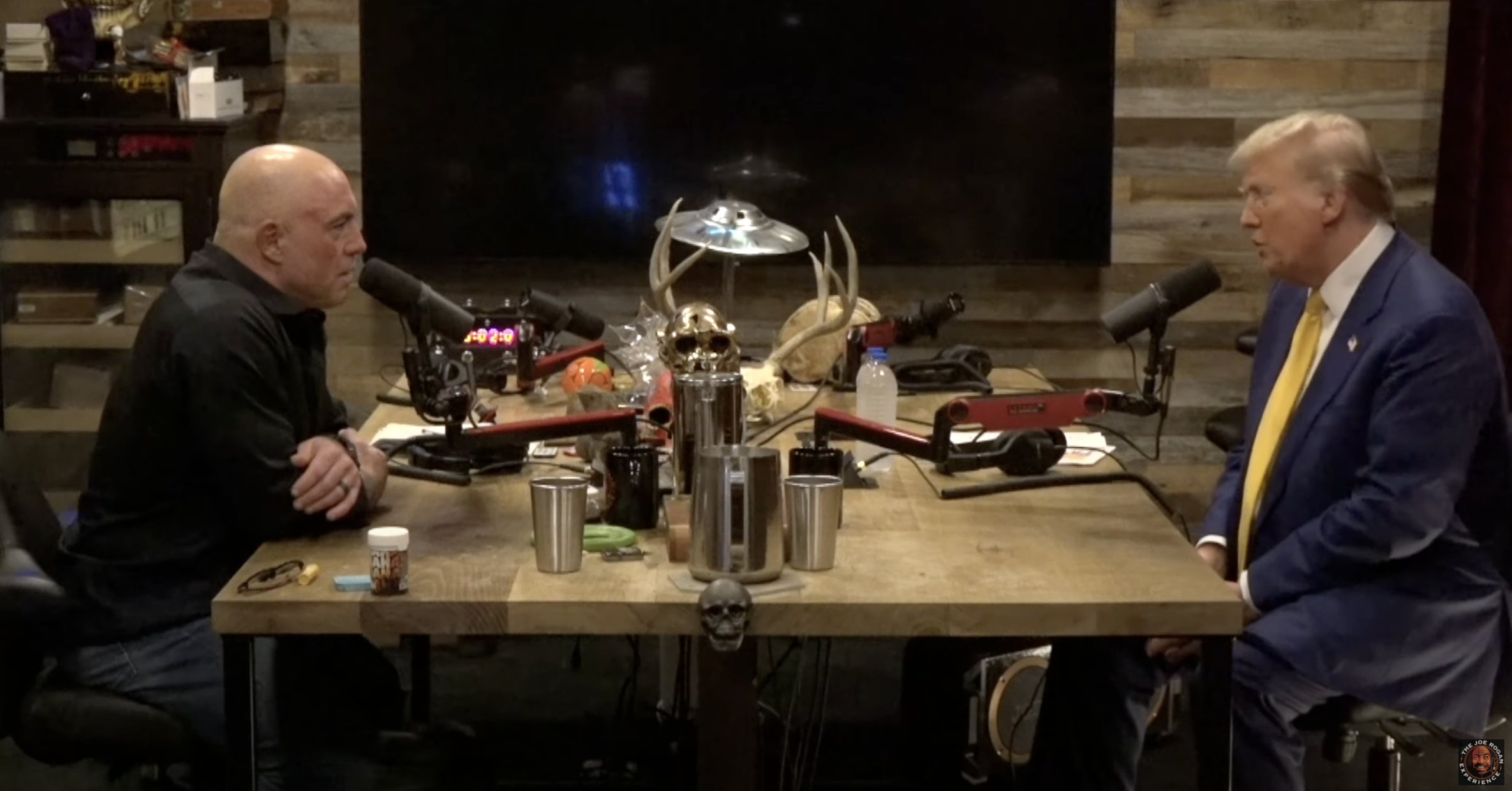
Donald Trump’s recent interview on The Joe Rogan Experience drew massive attention, racking up over 14 million views on YouTube in just 14 hours. At almost three hours long, the conversation covered an array of topics, and it marked the first time Trump appeared on Rogan’s show, which is especially popular among young men. With Trump actively courting this demographic, the interview was seen as a strategic move to connect with Rogan’s large, independent-minded audience.
Their discussion spanned a wide range of subjects, from American history and the Civil War to tariffs, income tax, Mars exploration, and the role of Kamala Harris. Trump even shared his belief that life on Mars could be possible, saying, “There’s no reason not to think” it might exist. The topics reflected both Trump’s interest in unconventional themes and Rogan’s penchant for exploring unique angles on familiar issues, making for a dynamic exchange.
Previously, Rogan had been reluctant to host Trump but reportedly changed his mind after the assassination attempt on the former president in July. The incident seemed to have shifted Rogan’s perspective on Trump’s candidacy, leading to a conversation where both expressed mutual respect. Trump acknowledged Rogan’s openness, hinting at a new rapport between the two.
Toward the end of the interview, they discussed Robert F. Kennedy Jr., whose health-focused platform, “Make America Healthy Again,” has resonated with Rogan. Rogan appreciated Trump’s willingness to adopt elements of Kennedy’s public health approach. Although the interview ran over time and delayed Trump’s rally in Michigan, it underscored his commitment to reaching new audiences and addressing a variety of issues in a long-form setting.
Watch Donald Trump’s full interview with Joe Rogan here.
Campaign 2024
Trump takes lead in polls for first time since August
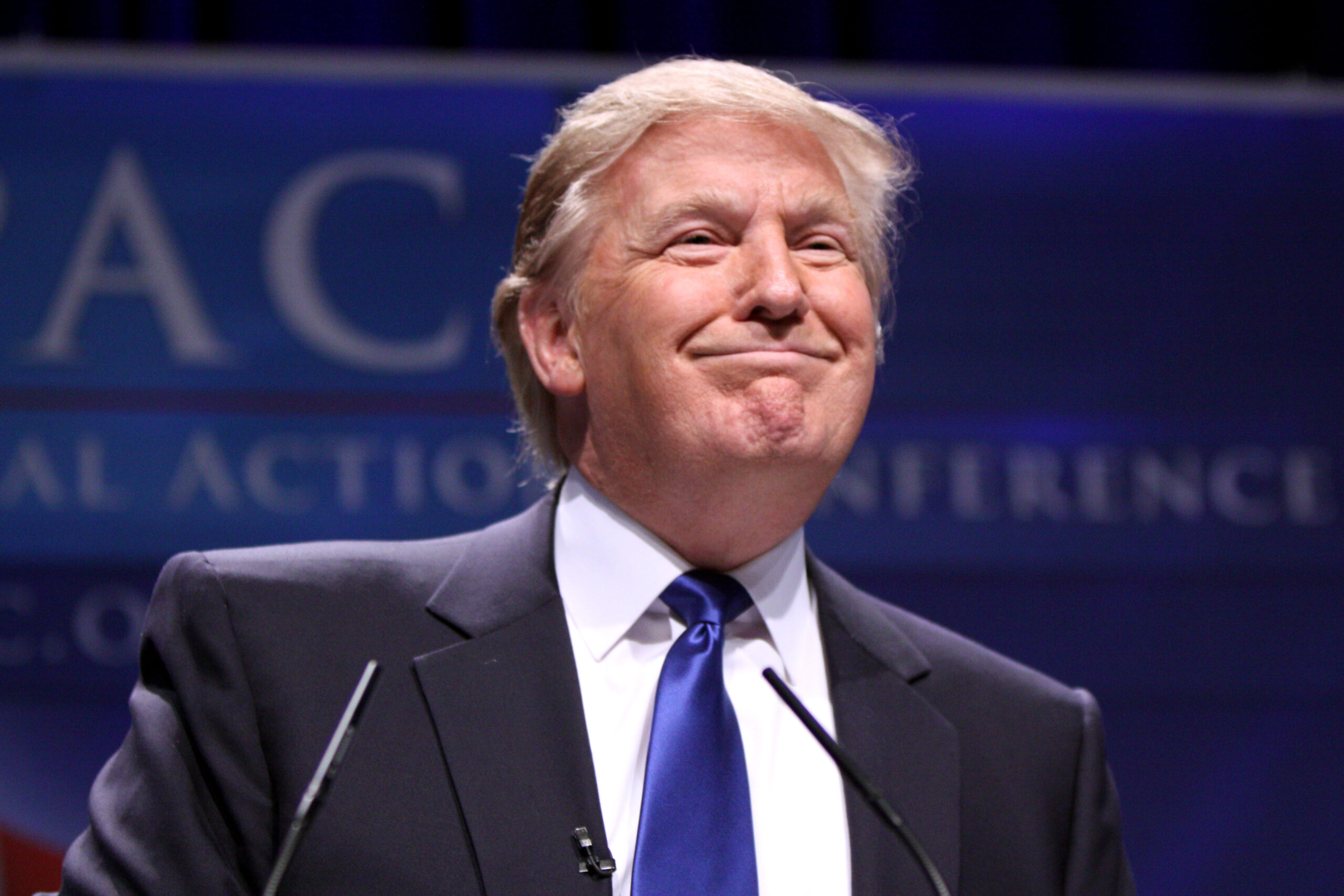
Donald Trump has retaken the lead over Vice President Kamala Harris in the RealClearPolitics polling average, a significant shift as the 2024 election race approaches its final phase. This marks Trump’s first time leading in the polling aggregate since August 5th, when Harris surged after President Joe Biden’s unexpected exit from the race.
The reversal now has political analysts and strategists questioning whether this change signals an actual shift in voter preferences or is an artifact of methodological factors in polling.
The phenomenon of “poll herding” has become a prominent discussion point in recent days. Poll herding refers to a tendency among pollsters to align their results more closely with the broader polling average, particularly as the election nears.
This tactic may be aimed at reducing discrepancies between individual polls and the ultimate election outcome, enhancing pollsters’ reputations for accuracy. However, it can also distort the picture by forcing divergent polling results toward a perceived “consensus,” even if the individual data points might suggest a different story.
Polling expert Adam Carlson said that pollsters may be “herding toward a tie to try to cover their asses,” after CNN, the New York Times, and others all brought the race to within one point.
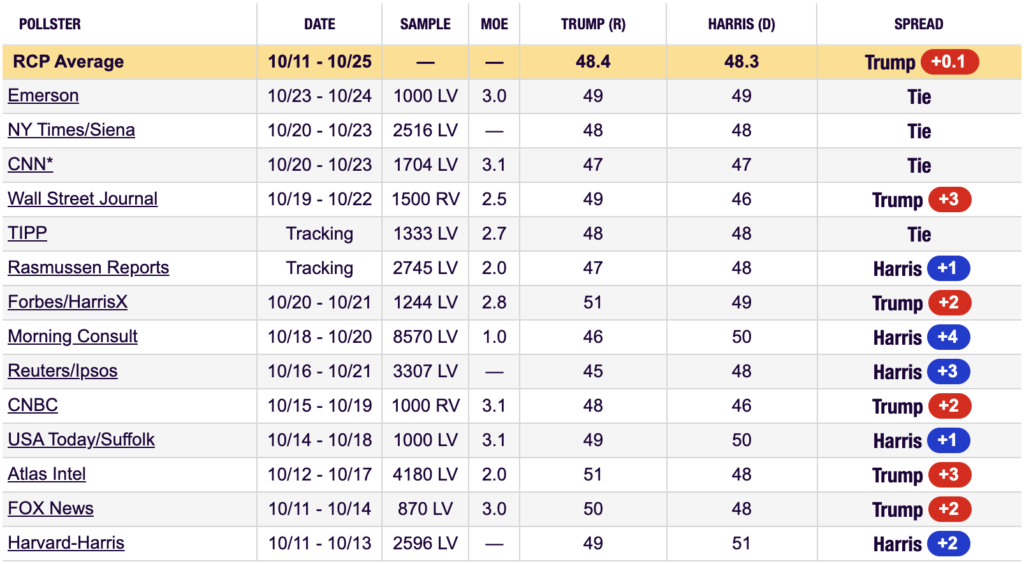
Whether this latest polling average reflects a short-term bounce or a lasting lead for Trump remains to be seen, but with the election just days away, the RealClearPolitics polling average has become a key indicator in a highly volatile race.
-
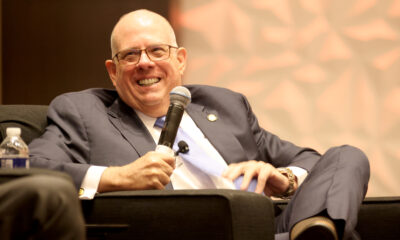
 Campaign 20242 years ago
Campaign 20242 years agoNew poll reveals Hogan’s path to victory
-
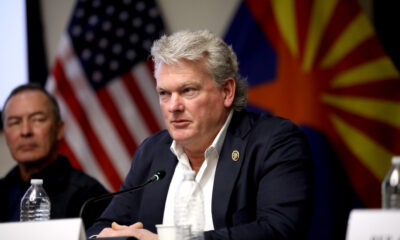
 Campaign 20242 years ago
Campaign 20242 years agoRep. Mike Collins makes antisemitic post on X
-

 Opinion2 years ago
Opinion2 years agoOp-ed: Stop talking about Bidenomics
-

 Education2 years ago
Education2 years agoK-12 teachers report varied views on race, gender identity in new poll
-

 State Politics2 years ago
State Politics2 years agoThe new minimum wage in California
-
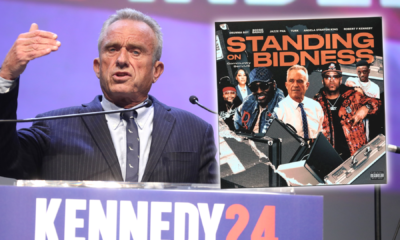
 Campaign 20242 years ago
Campaign 20242 years agoRFK Jr. campaign releases surprise rap song
-

 Campaign 20242 years ago
Campaign 20242 years agoRuben Gallego quietly leaves Progressive Caucus
-
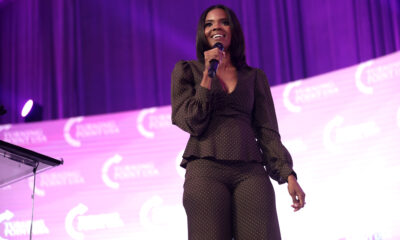
 Uncategorized2 years ago
Uncategorized2 years agoRight-wing commentator Candace Owens fired from Daily Wire








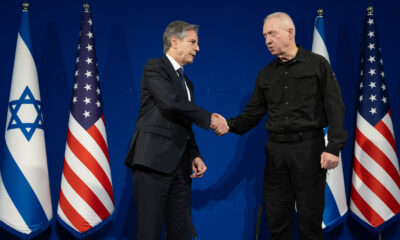

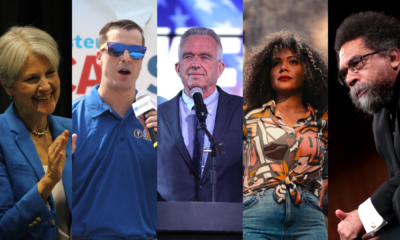



Pingback: Chase Oliver wins first Oklahoma Libertarian Primary - The Youth Insight